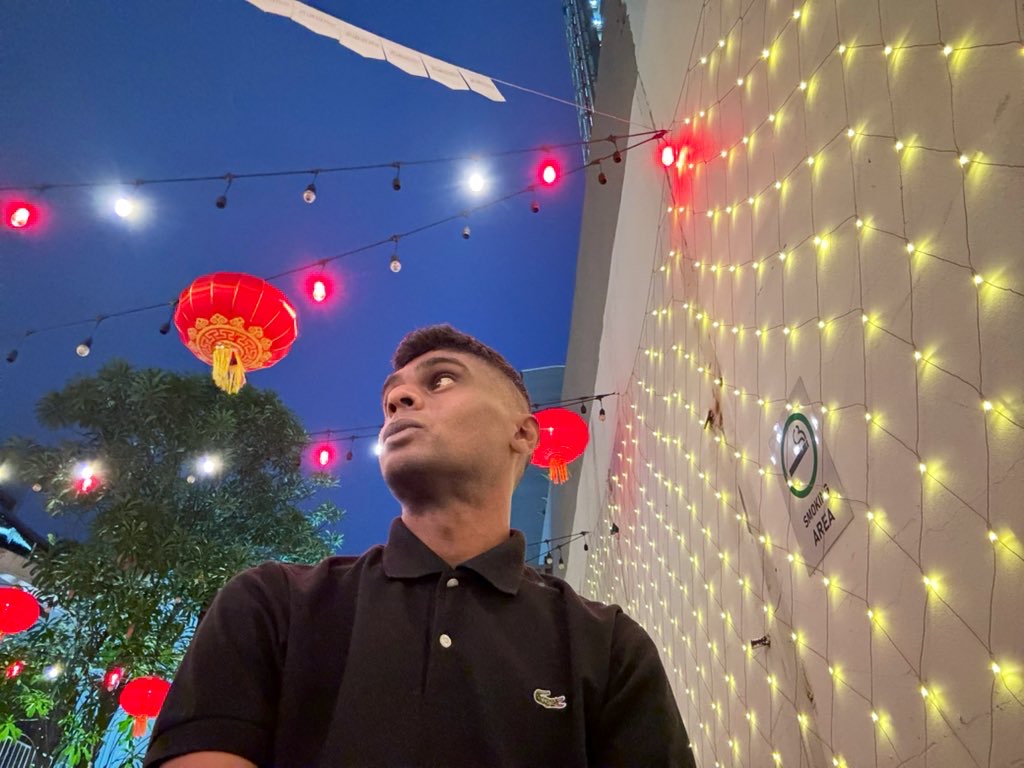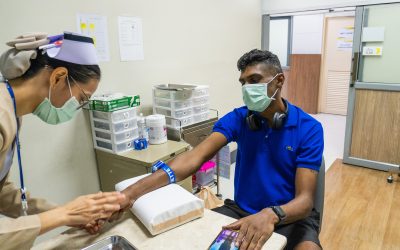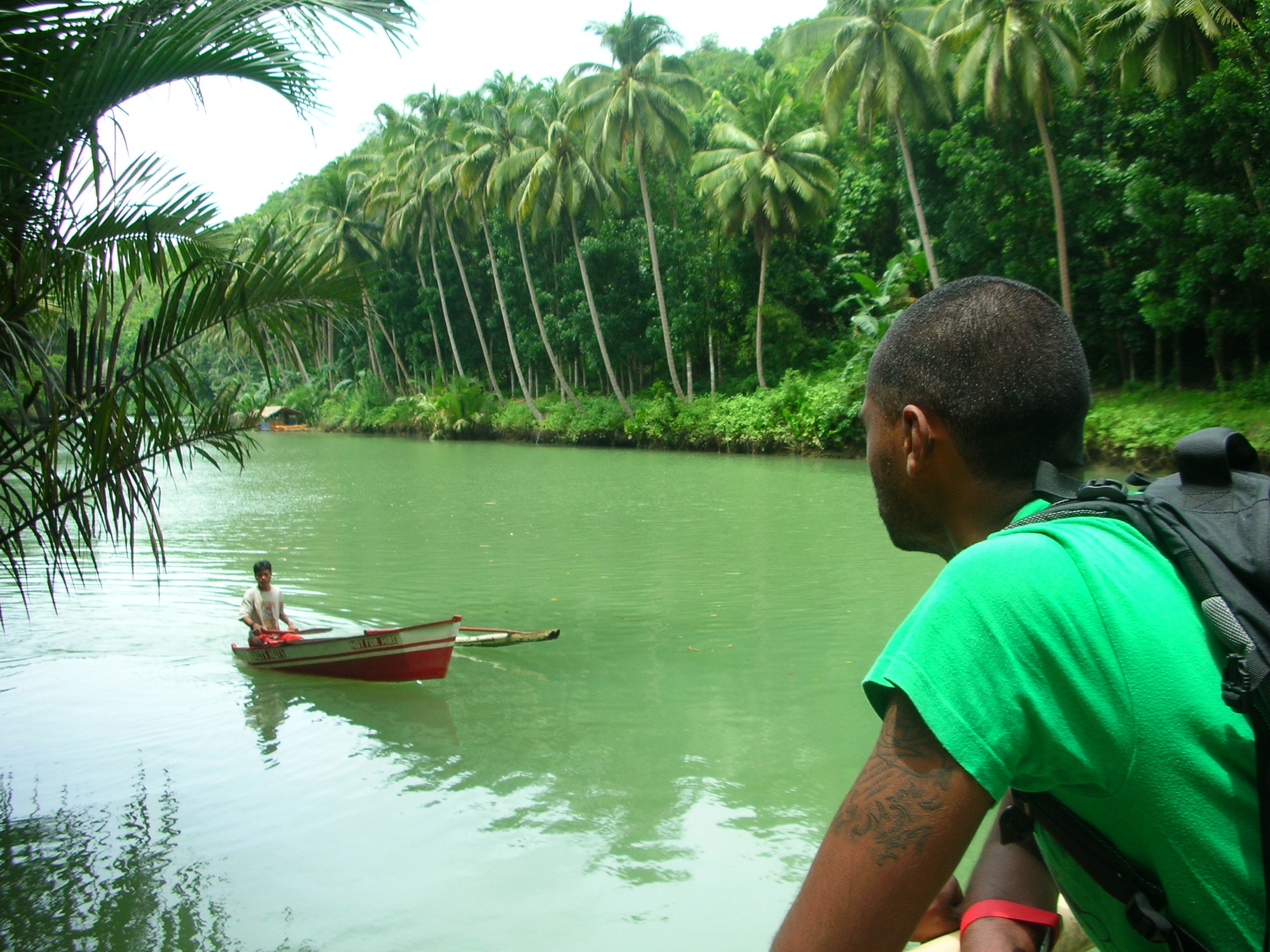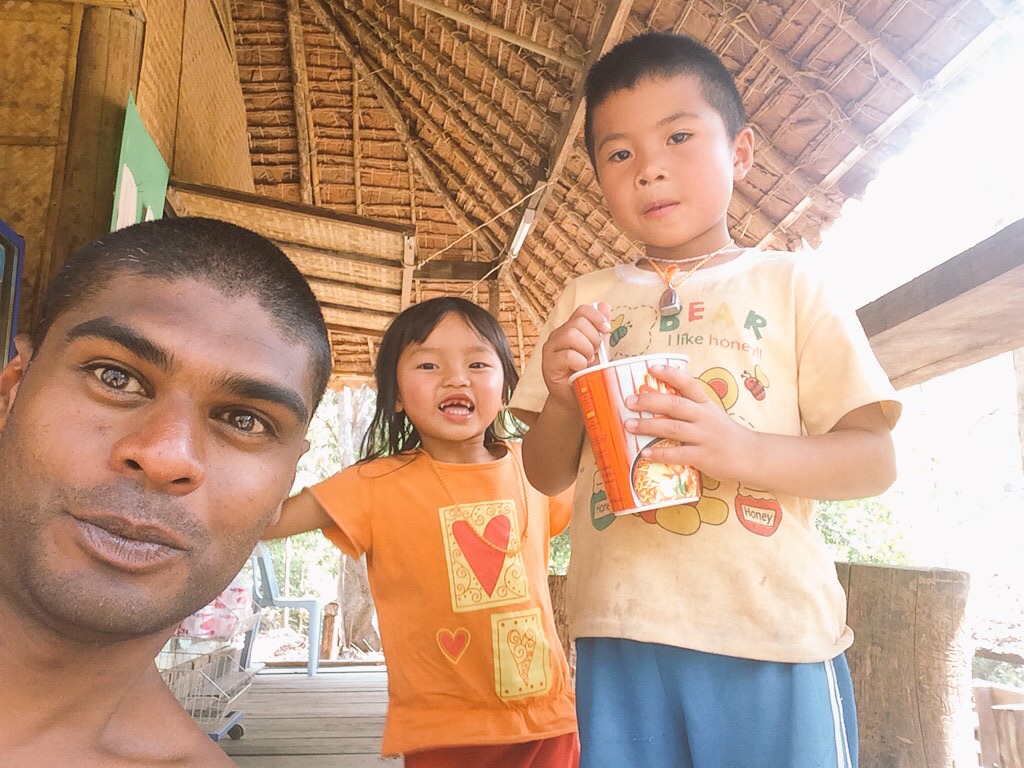Despite escaping with my life while thousands of others died on the island, it wasn’t the first wave, or the second wave of the Asian Tsunami, that came closest to killing me.
I should make clear from the very start that I am not a soldier. Nor, have I ever been a trained first responder, far from it. At the time of the tsunami, I had recently graduated university and had just left my home in London to start a new life abroad working as a Junior High and Elementary School English teacher in Kyoto, Japan.
I was on holiday on Koh Phi Phi island on the west coast of Thailand, when the waves of the 2004 Asian Tsunami hit. From the moment the wave hit, until the following morning, we were cut off from the outside world.
Through out this time, I volunteered and joined a group of tourists, who stayed on ground level and did what we could to best help. During the 24-hour nightmare, we were involved in the rescue and care of some of the most seriously injured on the island.
It was brutal – I live it every day – there were numerous occasions during the search and rescue where I believed my life or the lives of others were in imminent danger. We were involved with recovering the dead and triaging the seriously injured. I had or have never experienced anything remotely similar, prior to or after being caught in the Asian Tsunami.
As a teacher, I genuinely believe in social responsibility and serving my community, although I’m honestly not the heroic soldier/policeman type. However, when the waves of the Asian tsunami tore through Koh Phi Phi island, I don’t know if it was the shock of the trauma or the guilt of surviving while countless died around me, but I went into autopilot. I didn’t think about any of it, I just got “stuck in”, it was the British thing to do. I’ve never been more scared in my life, but I had to do it. I didn’t have a scratch on me, honestly, there wasn’t even an option not to help. My subconscious isn’t programmed that way.
Despite escaping with my life while thousands of others died on the island, it wasn’t the first wave, or the second wave of the Asian Tsunami, that came closest to killing me.
Nor was it the years of misery and misdiagnosis, which eventually led to my life completely spiraling out of control and losing everything I loved and worked for.
The stigma [of mental health] distorted my reality, to the point I couldn’t deal with my past and didn’t want my future. I couldn’t see a way out.
From the broken bones and broken heart to the shock of the motorbike crash, the fear of the psychiatric ward admission, to genuinely freaking out on apocalyptic trauma while being remanded in police custody.
They were all horrific to go through, and the images are still burnt into the back of my retinas. It’s quite difficult to reflect upon how bad things got before the PTSD diagnosis and treatment. Each of the experiences of crisis were psychologically terrifying to endure, for their own reasons, but when things really became unmanageable and I lost all hope, it wasn’t the trauma of living with trauma that always drove me to the edge of the point of no return.
It was the common denominator to each crisis. The social stigma of living as mentally inadequate, which was the silent killer, that always acted in the shadows as an accelerant that compounded the despair, suffering and fueled my self-destruction.
The social stigma of mental health was what came closest to killing me. Or, maybe that should read, ‘I almost killed myself’ because of the stigma surrounding mental health. The stigma distorted my reality to the point I couldn’t deal with my past and didn’t want my future.
I couldn’t see a way out. Before the diagnosis, I didn’t know how to cope, I didn’t know I was really suffering from PTSD. I didn’t know how to describe the symptoms. The symptoms in hindsight would come and go, they weren’t always consistent. It’s not easy opening up about the most horrific thing imaginable in a 5-minute doctor’s appointment when all they want to do is give you a pill and send you on your way.
I felt no one understood. I had been in out of doctor’s surgeries and A & E wards for years. I’d always been open about the tsunami and the search and rescue, but because I didn’t fit the stigmatised stereotype of a PTSD sufferer, I wasn’t even referred to be tested for Post Traumatic Stress Disorder. Instead, the focus was shifted to general everyday problems that non-trauma survivors experience.
It was only by being diagnostically tested for PTSD by an NHS psychologist, who was actually qualified in recognising the symptoms and was empathetic to the misconceptions and social stigmas surrounding the diagnosis, did I eventually get diagnosed and was eligible to receive the support that I had so desperately needed for years.
I hope, in time, we as a society get to a point where admitting you suffer from depression or any mental health-related condition has the same stigma attached to it as saying you broke your leg.
I can honestly say that I doubt I’d be alive if I wasn’t diagnosed and received the right support and treatment for PTSD… And, is the reason why I am a Stigma Fighter.
My life has moved forward since the PTSD treatment, it’s not ideal, but it’s manageable. There are still bad days, but I’m trying to focus on the good. The stigma of mental health is still a factor in my life, but I hope I can help others by sharing my story and humanising the silent suffering that so many struggle with.
Like the countless examples throughout history, with every civil rights movement, it took open and compassionate dialogue coupled with a greater understanding and education to break down the walls of prejudice and stigma.
I believe there is definitely change in the air, organisations such as www.sane.org.uk are doing a fantastic job highlighting this worthy cause to the public.
I hope in time, we as a society get to a point where admitting you suffer from depression or any mental health-related condition has the same stigma attached to it as saying you broke your leg.
So essentially, we can move forward leaving “no man behind”, by compassionately supporting those who need support and understand that despite their scars not being visible, the pain and suffering is just as real, if not more painful than any broken bone.





0 Comments